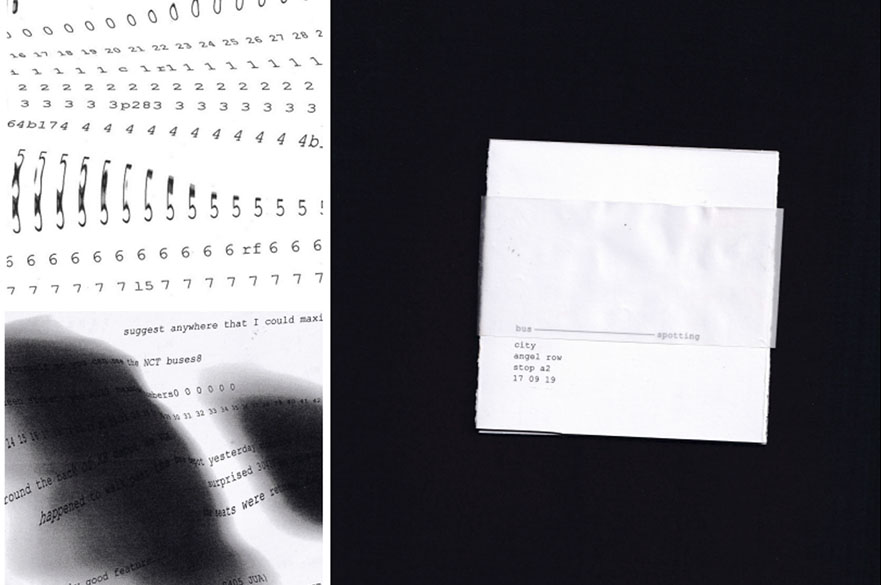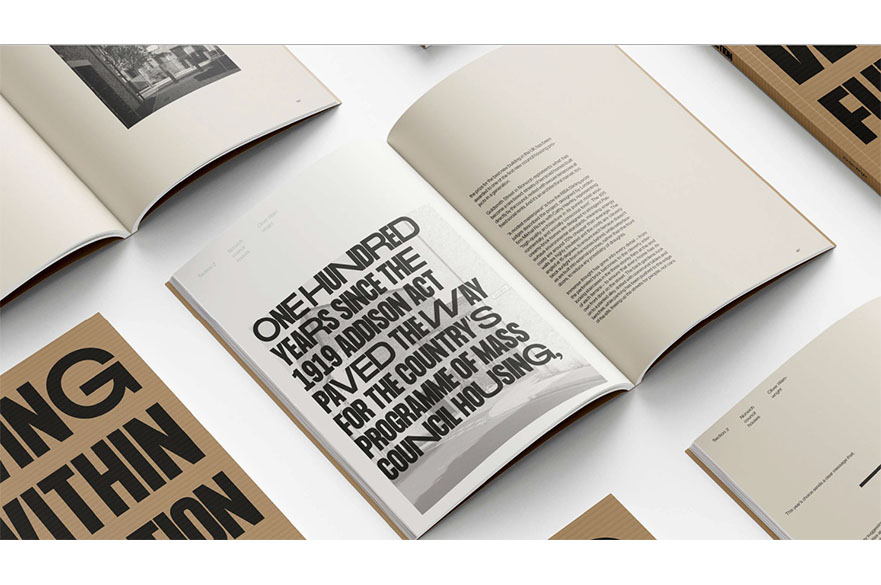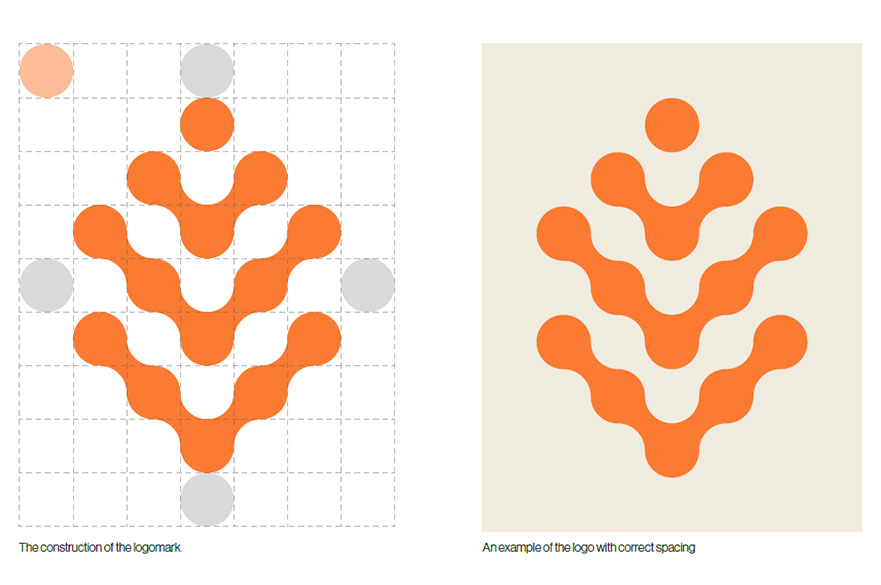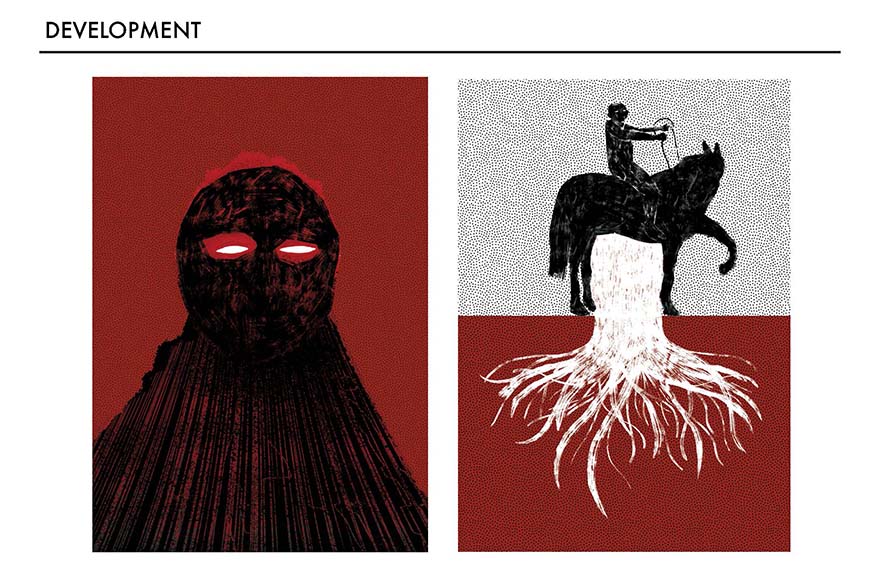Graphic Communication MA
About this course
The MA Graphic Communication course recognises exciting new directions in the ever-diversifying professional industry and offers you the chance to explore these through your own practice. Whether your personal interest is in typography, packaging, print, branding, digital, moving image, UX/UI or speculative design, on this course you will be able to personalise your learning journey through a modular course structure.
-
83% of NTU's research submitted to the 'Art and Design: History, Practice and Theory' Unit of Assessment was assessed to be world-leading or internationally excellent in the Research Excellence Framework (REF) 2021.
What you’ll study
Inter-disciplinary and collaborative opportunities, along with specialist theory and practice workshops delivered by experienced practitioners, will help you to critically reflect upon and locate your own practice before you engage with your own bespoke area of investigation and innovation. Complimentary to this is our unique Professional Futures: Graphic Communication module, which is designed to help focus and enhance your future career ambitions, whether those are commercial, experimental, or academic.
Culture and Collaboration
(20 credit points)
On this module you will develop an advanced level of understanding of the wider cultural context for current and future work. You will gain skills in research, analysis, idea generation, critical thinking, communication, and presentation. During the module, you will collaborate across the school on a negotiated theme relevant to current debates which relate to art & design theory and practice to produce a selected outcome contributing to a collective festival of ideas.
Advancing Research Design: Maximising Your Methods
(20 credit points)
The multi-disciplinary module provides an explorative platform for you to use as the basis for further research-based study or if you want to extend your knowledge of research methods and methodologies to enhance your future professional practice, or you are considering progression to PhD level study.
Locating your practice
(40 credit points)
On this module, you will develop your understanding of the synergy between research, theory and practice. You will explore, experiment, and interrogate expanding practices within graphic communication. You will then reflect upon and define your future creative practice while experimenting with new techniques and processes.
Masters Personal Practice
(100 credit points)
On this module, you will create a personalised professional portfolio aligned to your professional ambition and direction. You will expand your future practice through further exploration, experimentation and risk-taking and establish modes of practice to prepare you for your future career.
Optional Module:
Professional Futures
(20 credit points)
This optional module is offered to all students on our Visual Communications courses. This module aims to provide you with the space to explore and share ideas, future gazing professional opportunities in visual communications. You will collaborate with students from all subject areas in visual communications and will form cross-disciplinary debate and discussion in relation to employment, enterprise, and innovation.
We regularly review and update our course content based on student and employer feedback, ensuring that all of our courses remain current and relevant. This may result in changes to module content or module availability in future years.
Don’t just take our word for it, hear from our students themselves
Student Work
Video Gallery
How you're taught
The course allows for different learning styles such as:
- lectures
- workshops
- presentations
- individual and group tutorials
- negotiated and collaborative learning
- self-directed research
- in person and online briefings
How you're assessed
Assessment is 100% by coursework and involves:
- negotiated written & visual output
- Structured individual written reflection
- set project research and development
- verbal and visual presentations
- portfolio
Careers and employability
Within the elective module 'Professional Futures' you will be encouraged to engage with industry research, networking, alumni/expert lectures and to reflect on work-related experiences and practices, whether past, current or future, in order to enhance employability skills. The collaborative and negotiated nature of the project work in this and other modules on the course not only enriches soft skills, but along with the possibility to undertake live briefs and placements, also helps prepare you for future employability. You’ll also have the opportunity to learn entrepreneurship skills through business development courses (such as The Hive’s programme) and attend industry events.
Recent examples of industry competitions and live projects have included:
- RSA competition briefs
- D&AD competition briefs
- Creative Conscience competitions - focused on ethically conscious design
- Nottingham UNESCO City of Literature cover design competition
- Collaborative projects/placement opportunities with Nottingham Contemporary Gallery.
You’ll benefit from guest lectures from visiting professionals who will cover a wide range of creative and professional practice. Recent guest speakers have included:
- Matt Willey (Pentagram)
- Chrissy Levett (Creative Conscience Awards)
- Simon Esterson and John Walters (Eye magazine)
- Jamie Ellul (Supple studio and Chartered Society of Designers).
Our graduates often pursue careers in digital and printed media for advertising, branding, marketing and promotion and a diverse range of publications. Recent graduate roles and destinations include:
- Graphic Designer (Twinkl educational publishing)
- Assistant designer (Joules fashion label)
- Environmental visual designer (Horizon Design).
Others have:
- Set up their own business, in UK and abroad
- Progressed onto further study at PhD level
- Found work in lecturing
- Returned to their previous occupations with a new focus.
This course will equip you with strong creative and problem-solving skills. Our graduates become valuable members of professional teams working in collaborative and cross-disciplinary ways on a range of visual communication projects.
Campus and facilities
Explore all of our facilities in the Nottingham School of Art & Design Facilities Hub.
Entry requirements
What are we looking for?
- 2.2 honours degree in a related subject.
- Applicants with non-standard entry qualifications and / or relevant work experience will be considered on an individual basis.
Other requirements:
NTU may admit a student with advanced standing beyond the beginning of a course, through an assessment of that student's prior learning, whether it is certificated or uncertificated. Our Recognition of Prior Learning and Credit Transfer Policy outlines the process and options available to these prospective students, such as recognising experiential learning or transferring to a similar course at another institution, otherwise known as credit transfer.
All prospective students who wish to apply via Recognition of Prior Learning should initially contact the central Admissions and Enquiries Team who will be able to support you through the process.
Getting in touch
If you need any more help or information, please contact us at Ask NTU or call on +44 (0)115 848 4200.
Getting in touch
If you need more help or information, get in touch through our enquiry form
You will need one of the following:
- Bachelors degree grade 2.2 or equivalent qualification in a related subject..
- Applicants with non-standard entry qualifications and / or relevant work experience will be considered on an individual basis.
Other requirements:
International qualifications
We accept qualifications from all over the world – check yours here:
Postgraduate preparation courses (Pre-Masters)
If you don’t yet meet our entry requirements, we offer Pre-Masters courses through our partner Nottingham Trent International College (NTIC), based on our City Campus:
English language entry requirements
You can meet our language requirements by successfully completing our pre-sessional English course for an agreed length of time, or by submitting the required grade in one of our accepted English language tests, such as IELTS:
Would you like some advice on your study plans?
Our international teams are highly experienced in answering queries from students all over the world. We also have members of staff based in Vietnam, China, India and Nigeria and work with a worldwide network of education counsellors.
- Complete this simple form to keep in touch with the International Office.
Fees and funding
Mode of study | Home tuition fee |
Student fee | £9,900 |
Alumni Loyalty Scheme - 20% fee discount
We're happy to be able to offer a 20% fee discount to most current NTU students and recent NTU graduates.
See if you're eligible.
Postgraduate loans
The government introduced a new postgraduate loans scheme in the 2016/17 academic year for Masters degrees. The loan will be a contribution towards the costs of study and it will be at the student's discretion to use the loan towards fees, maintenance costs or other costs.
Scholarships
We are offering a number of scholarships for Masters study.
Mode of study | International tuition fee |
Student fee | £17,850 |
Alumni Loyalty Scheme - 20% fee discount
We're happy to be able to offer a 20% fee discount to most current NTU students and recent NTU graduates.
See if you're eligible.
International scholarships
You might be able to get a scholarship to help fund your studies. We award scholarships to international students who can demonstrate excellent achievement, passion and dedication to their studies.
Please take a look at our International students page for information about fees, scholarships for international students, visas and much more.
Getting in touch
For more advice and guidance, you can contact our Student Financial Support Service.
Tel: +44 (0)115 848 2494
How to apply
Ready to join us? Then apply as soon as you can. Just click the Apply button at the top of the page and follow the instructions for applying.
Application deadline
You can apply for this course throughout the year, but we'd recommend that applications should be received by the end of July for entry in September.
Examples of work
In order for us to consider your application, we need you to submit examples of your practical work. Please upload these as part of your online application.
For full details on what we require, please read our Masters Work Submission information.
Writing your application
Be honest, thorough and persuasive in your application. Remember, we can only make a decision based on what you tell us. Make sure you include as much information as possible, including uploading evidence of results already achieve, as well as a personal statement.
Keeping up to date
After you've applied, we'll be sending you important emails throughout the application process - so check your emails regularly, including your junk mail folder.
You can get more information and advice about applying to NTU in our postgraduates' guide. Here you'll find advice about how to write a good personal statement and much more.
Getting in touch
If you need any more help or information, please contact us at Ask NTU or call on +44 (0)115 848 4200.
Apply online through our NTU applicant portal.
Application advice
Apply early so that you have enough time to prepare – processing times for Student visas can vary, for example. After you've applied, we'll be sending you important emails throughout the application process – so check your emails regularly, including your junk mail folder.
Writing your personal statement
Be honest, thorough, and persuasive – we can only make a decision about your application based on what you tell us:
Your portfolio
If your initial application is successful, you may be asked to upload a portfolio of your work and you may also be asked to attend an interview.
Would you like some advice on your study plans?
Our international teams are highly experienced in answering queries from students all over the world. We also have members of staff based in Vietnam, China, India and Nigeria and work with a worldwide network of education counsellors.
- Complete this simple form to keep in touch with the International Office.
The University's commitment to delivering the educational services advertised.










